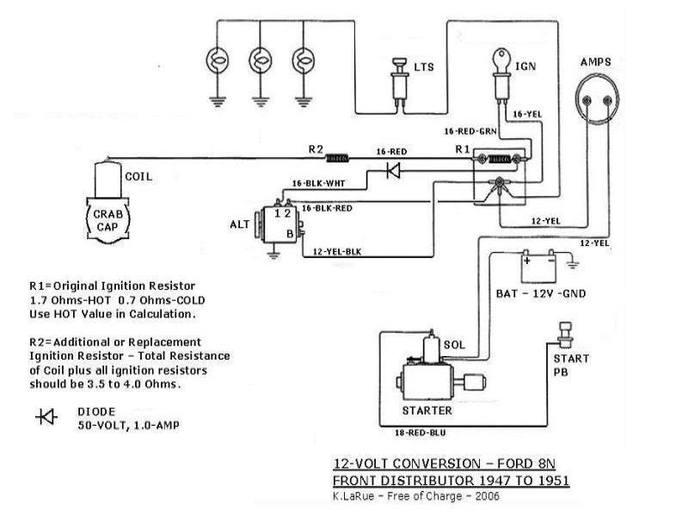When it comes to working on Ford 8n tractors, having a clear understanding of the wiring system is crucial. A Ford 8n 6v Wiring Diagram provides a visual representation of the electrical components and wiring connections in the tractor. By following the diagram, you can easily identify the various components and troubleshoot any electrical issues that may arise.
Why Ford 8n 6v Wiring Diagram are essential
- Helps in understanding the electrical system of the tractor
- Aids in troubleshooting electrical problems
- Ensures proper installation of new components
- Prevents damage to the electrical system
How to read and interpret Ford 8n 6v Wiring Diagram effectively
Reading and interpreting a wiring diagram can be daunting for some, but with a bit of guidance, it becomes much easier. Here are some tips on how to effectively read and interpret a Ford 8n 6v Wiring Diagram:
- Start by identifying the key components in the diagram such as the battery, ignition switch, lights, and other electrical devices.
- Follow the wiring lines to see how each component is connected to the others.
- Pay attention to the color codes on the diagram as they indicate the different wire colors used in the system.
- Refer to the legend or key provided with the diagram to understand the symbols and abbreviations used.
How Ford 8n 6v Wiring Diagram are used for troubleshooting electrical problems
When faced with electrical issues in your Ford 8n tractor, a wiring diagram can be a valuable tool in diagnosing and resolving the problem. Here’s how you can use the diagram for troubleshooting:
- Trace the wiring connections to identify any loose or damaged wires that may be causing the issue.
- Check for blown fuses or relays by referring to the diagram for their locations.
- Use a multimeter to test the continuity of the wires and components as per the diagram.
- Compare the actual wiring in the tractor with the diagram to ensure everything is connected correctly.
Importance of safety when working with electrical systems
Working with electrical systems can be dangerous if proper precautions are not taken. Here are some safety tips and best practices to keep in mind when using wiring diagrams:
- Always disconnect the battery before working on the electrical system to prevent the risk of electric shock.
- Use insulated tools to avoid accidental contact with live wires.
- Avoid working on the electrical system in wet or damp conditions to prevent short circuits.
- If you’re unsure about a particular wiring connection, seek help from a professional mechanic or electrician.
Ford 8n 6v Wiring Diagram
1948 Ford 8n 6 Volt Wiring

1948 Ford 8n 6 Volt Wiring

Wiring Diagram For 6 Volt 8n Ford Tractor – Diagrams : Resume Template

8n Ford Tractor Wiring Diagram 6 Volt

Ford 8n Wiring Diagram 6 Volt

Ford 8N Wiring Diagram 6 Volt For Your Needs
